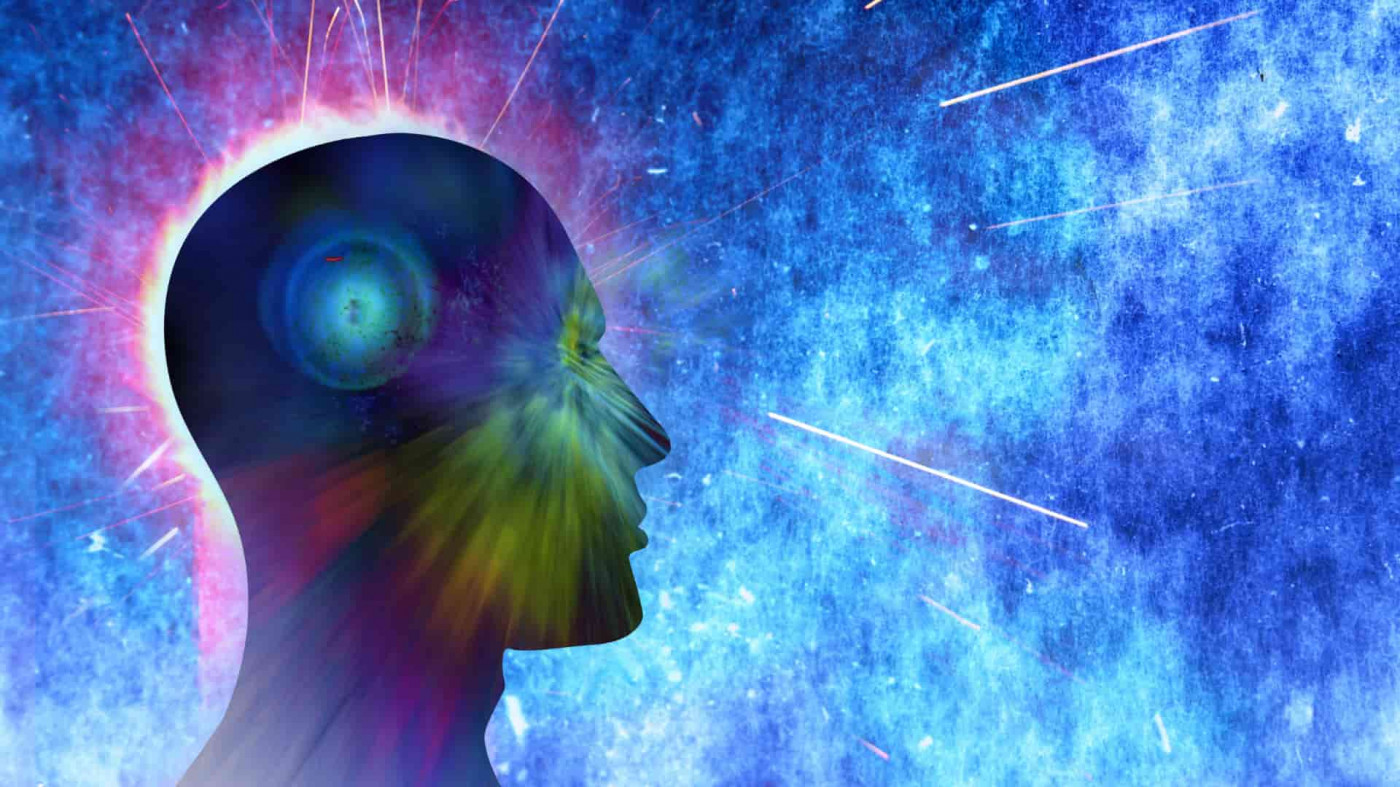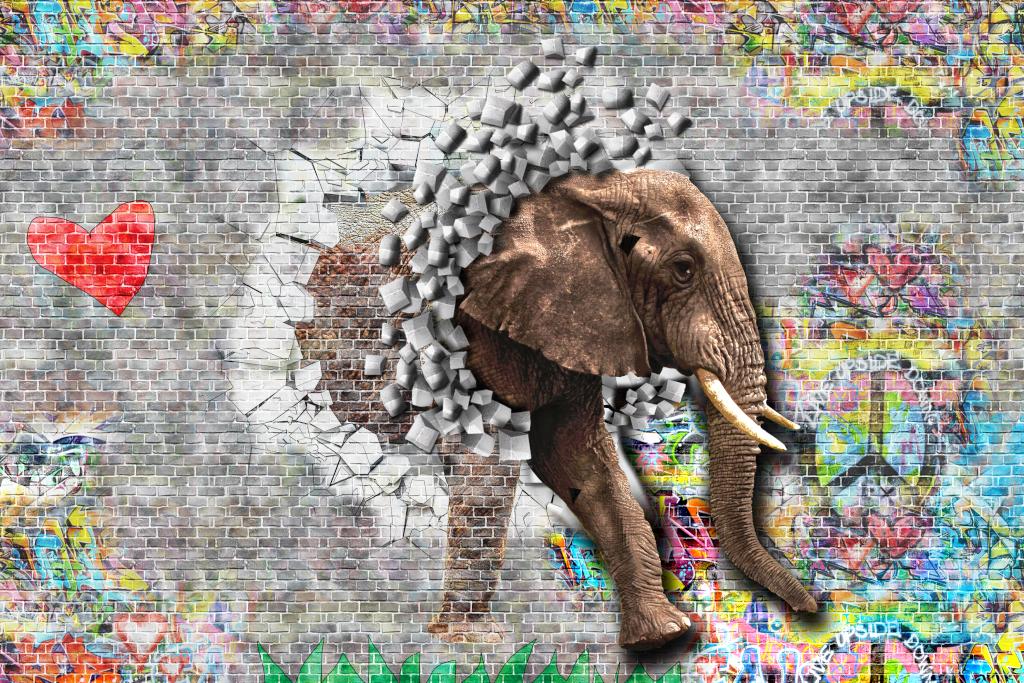In the world which is created by our thoughts nothing else exists apart from pressure. Pressure is all there is in this two-dimensional mind-created world. There’s nothing but pressure in the two-dimensional world of our thoughts because there’s no actual ‘substance’ in it. Instead of ‘substance’ we have pressure; instead of ‘being’ we have compulsion. This is the invisible substitution that takes place when we live in the world of our thoughts instead of the world as it is in itself – ineffable being is replaced by brute compulsion. Or as we could also say – the incomparable gift of freedom is replaced by a bunch of rules telling us what to do…
‘Substance’ is another way of talking about actual being rather than the mere representation of it. In the world of representations everything is (of course) defined and because it is defined it is controlled. Once you can say what something is you have total control over it – you’re not only saying what it is, you’re saying what it isn’t, what it absolutely mustn’t be. Being, on the other hand, isn’t defined or definable and therefore it can never be controlled, it can never be compelled to be this or that. When we have no being but only the representation of being then this turns the tables on us – compulsion (or ‘pressure’) is now everything to us. Pressure is the name of the game!
The pressure in question has to do with the promise of being – because we’re lacking in genuine being all our thoughts are about how to achieve it. We won’t know that this is what all our thoughts are about but it is; because we have no being we are constantly driven by the need to either achieve being or avoid the pain of having our noses rubbed in the fact that we don’t have any. This is the type of motivational system we are caught up in when we’re living in the world that is made up of the representation of being rather than being itself. The key point to make here is that this motivational system is based entirely on deception – all our motivation is based on deception because when we’re living in the world that is made up of our thoughts we can’t ever allow ourselves to see that we don’t have any being. This awareness would put a stop to everything because being aware that we have no being’ cannot be part of the game of thought; it’s an untenable position – there’s nowhere to go from this basis. There’s nowhere to go from this basis because it isn’t a basis – it’s the falsification of all our assumptions, the annihilation of all our delusions, and thought can’t recover from this.
All bets are off, in other words, when we see that we have only illusory being – the world that we believe in and operate within (i.e. the defined world) has been wiped out as if it had never been and this rather tends to put the kybosh on things. It’s like suddenly discovering that we’re playing a game where up to this point we hadn’t a clue that this was the case – everything changes in a twinkling of the eye and no matter how much we might like to we can’t go back to the way things were. Once you see through the game you can’t turn the page back; once the cat is out of the bag then we might as well forget about getting it back in again. Even if we do manage to get the cat back in the bag again it’s still no good because everyone’s seen it now!
The upshot of all this – as we have said earlier – is that there are two complementary sorts of pressure and both of them work on a deceptive basis. The first type of pressure is the pressure to obtain being because we don’t have any, but we aren’t allowed to see this pressure for what it really is because this (as we have said) would give the game away. We see what we are being attracted to as some sort of independent external value that has nothing at all to do with our inner deficit. We fail to see the projection for what it is. The other type of pressure (or rather the complementary manifestation of the same pressure) is (as we have also already said) the pressure to avoid seeing that we have no genuine being and this outcome too is disguised as ‘an independent or external value’, only in this case it is negative rather positive, undesirable rather than desirable. It’s what we don’t want rather than what we want.
In terms of the game that’s being played here (without anyone ever admitting that it is a game) ‘winning’ is the disguised analogue of gaining actual being – even though this is something that can never ever happen no matter how well we play our cards. ‘Losing’ – on the other hand – is the camouflaged analogue of having our noses rubbed in the fact that actually we don’t have any being. As far as losing goes, even though we experience the pain of ‘having no being’ very clearly we misattribute it to what is going on in the game so instead of seeing that we never did have any being and never could (even if we did win instead lose) we wrongly see the ‘lack of being’ as being the result of our unsuccessful controlling, our unfortunate failure to ‘do the right thing’. When we feel good as a result of winning this feeling is based on nothing, and when we feel bad as a result of failing to win this feeling – although having its root in some sort of truth (i.e. the truth of our inner deficiency of being) – is completely misunderstood or misinterpreted.
When we put things in a straightforward, ‘no-frills’ way like this the very peculiar nature of our situation immediately becomes starkly obvious – not only are we under pressure (to win instead of losing) all of the time the pressure is actually quite meaningless because there is no way to successfully obey it no matter what we do (i.e. no matter good at controlling we are). This of course completely defeats the point of pressure (or motivation) because unless the genuine possibility of winning actually exists, how can we play the game? All of our pain, all of our hoping and fearing, all of our striving and straining is in vain since there was never any way in which we could have gained the prize that we were chasing so determinedly. The whole thing was a joke, a sham, a hollow game and – curiously – it is not the nominated negative outcome of losing that we’re really trying to avoid (even though we say it is, and believe it is), it’s the dreaded outcome of seeing through the game. Without knowing it, we are playing the game not in order to win the game (as we might quite understandably believe) but in order to avoid seeing that the game is a game.
The one reason we put up with all this unremitting pressure is because we think we stand to gain something as a result – the impossibility of the promised outcome makes a mockery of the whole struggle. If we look at things the other way around we can say – very obviously – that the only way the negative or aversive motivation can make sense is if the threat we are running away from is actually real. But the threat isn’t real because the outcome we are being terrorized with has already happened. The aversive compulsion is also a mockery – we are relentlessly driven every step of the way by our fear of an illusory event, an event that will never happen. There is no such event as ‘losing being’ (or rather losing the surrogate of being) because it was lost right from the beginning. We’re running away from having no being and yet the running away (i.e. the ceaseless goal-orientated activity, which is the displaced fear) is perpetuating this unhappy state forever. We maintain our lack of being by striving for it (or rather striving for what we think it is) and we also maintain our lack of being by running away from our awareness of this deficiency, which is what this frenetic business of ‘striving for an analogue’ comes down to.
The fascinating thing about this is that we can’t see that the nefarious substitution of ‘pressure’ for ‘freedom’ has taken place. How – we might wonder – could we be so oblivious to such a tremendous change? It seems incredible that we should be able to ‘make do’ with a situation that is the actual antithesis of freedom and never notice odd about it. It seems more than incredible that we should live in a world that is made up of ‘pressure, pressure and more pressure’ and yet still go around extolling the virtues of freedom, and declaring our commitment to it. And yet the analogue, the substitute seems to work perfectly well. We can see how the switch (which is essentially the substitution of ‘the stark lack of space’ for ‘space’) works as well as it does just as soon as we see that ‘the stark lack of space’ is just another way of talking about ‘the state of being defined’, which is the state of being that we embrace wholeheartedly when we live our lives in the two-dimensional world of our thoughts. We can say that the world of our thoughts is ‘two-dimensional’ precisely because it is defined – this is not just ‘a poetical way of speaking’, in other words. Anything that is defined has only the two sides – the side of YES and the side of NO. Every defined thing has to be able to answer either YES or NO to the question (or ‘criterion’) that defines it; if it can’t answer one way or the other then it simply doesn’t get to be defined, obviously!
So we embrace the state of being defined unreservedly and never consider what it is we’re actually doing here, which is ‘opting to live in the world of representations’ rather than in the world as it is in itself, which is not defined (i.e. which is not ‘a representation’). Saying that we ‘embrace the state of being of defined unreservedly’ is of course the same thing as saying that we embrace the defined self unreservedly and this explains why we never see anything odd about living life on the basis of compulsion rather than freedom – the self (like all defined things) has two sides and in-between these two sides there is nothing. There’s no inside, only an outside, as Wei Wu Wei says. The defined self is ‘an unreal mind-created abstraction’ in other words. We never notice this however because we never look at the self – our attention is always turned outwards towards the world and we are forever trying to control the world on the basis of how it looks when we see it from the static standpoint of the defined or abstract self. This endeavour to control the world as it seems to us from the standpoint of the fixed or abstract self is so demanding (so pressurized!) that we never look beyond it. We haven’t got time to look beyond it – we’re far too busy controlling, far too busy trying to achieve our goals. If we did ‘look beyond the struggle’ then we’d see something very peculiar – we’d see that ‘acting on behalf of the mind-created self’ is perpetuating the state of non-freedom as if this were in some way ‘a good thing’….
Image taken from: scifi.com/ futureworld






